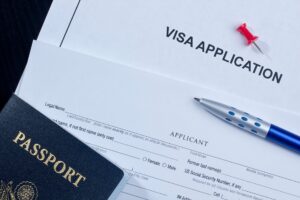At US-ILC, we listen, we care, we deliver: Let our 89 years of combined experience help you to navigate the complexities of immigration law!
The Department of State has issued approximately 55 million visas to tourists, students, workers, and other individuals coming to the U.S. for temporary stays. The most issued type of visa is the 10-year B1/B2, which allows the holder to enter the U.S. and remain for up to six months at a time. While a B1/B2 visa holder can enter the U.S. multiple times over the 10-year validity period, they cannot spend more than six months in the U.S. within a twelve-month period. However, the period of stay can be renewed for an additional six months, depending on the reason for the extension.
Now, the Trump administration has announced plans to have all 55 million visas, including B1/B2, reviewed under a continuous vetting process. DOS officials will be tasked with reviewing immigration records, law enforcement records in the U.S. and abroad, and social media postings to spot violations that could lead to visa revocation or deportation.
Types of Nonimmigrant Visas Affected
The new reviews will affect all nonimmigrant visas that the DOS has issued to individuals who plan to remain in the U.S. for temporary periods. Each type of visa has its own stipulations, period of validity, and eligibility requirements. Overall, the most common types of nonimmigrant visa that the reviews will affect are as follows:
- B1/B2 – issued to tourists and business visitors, with a typical validity period of ten years
- F-1 – issued to students to pursue studies in the U.S., with a validity period of four years
- H-1B, L-1, H2-B – issued to nonimmigrants who plan to engage in temporary work for a U.S. employer, with a validity period based on the type of visa
- O-1, P-1 – talent visas issued to temporary workers, with a validity period based on the type of visa
Types of Immigration Violations That Could Lead to Visa Revocation or Deportation
- Overstays – visa holders who remain in the U.S. beyond the expiration date on their I-94 forms
- Criminal history – visa holders with criminal records in the U.S. or in any other country
- Terrorist activities – visa holders who belong to terrorist organizations or who have participated in terrorist activities
- Anti-American sentiments – visa holders who have shared or posted social media messages determined to be anti-American
- Public safety risk – visa holders who are determined to pose a risk to public safety or national security
Opponents of the plan to review 55 million visa holders believe it will lead to discrimination against individuals from specific countries. Students, workers, and tourists from countries such as China and India could be disproportionally at risk of being deported or having their visas revoked. While it’s unclear how the DOS plans to review the 55 million visas issued, such an unprecedented, large-scale project will likely lead to some important changes in the visa vetting process.
If you are a non-immigrant visa holder who is concerned about the new review process, or if you have questions regarding another immigration matter, contact U.S. Immigration Law Counsel for a strategy session to discuss your case.




